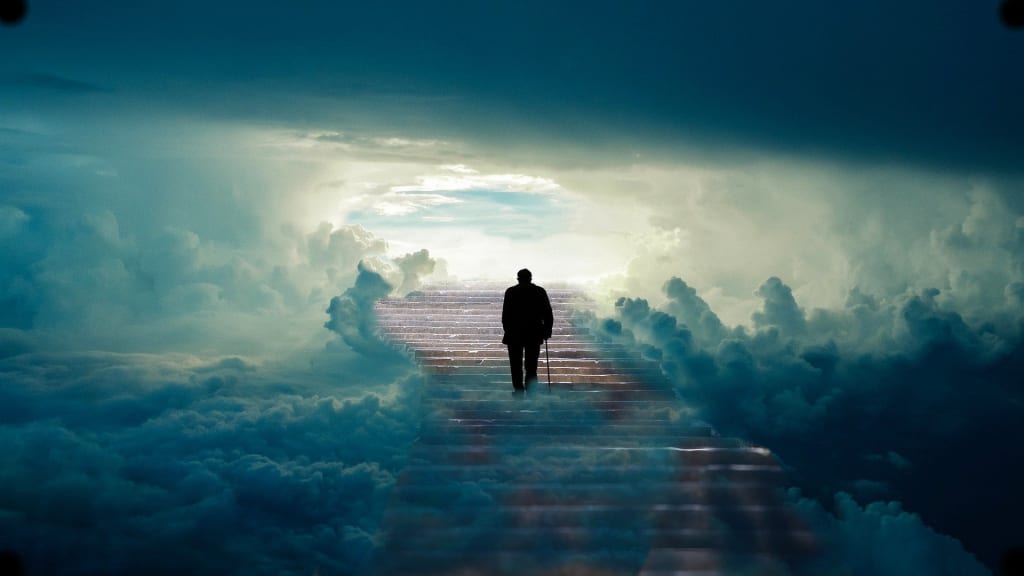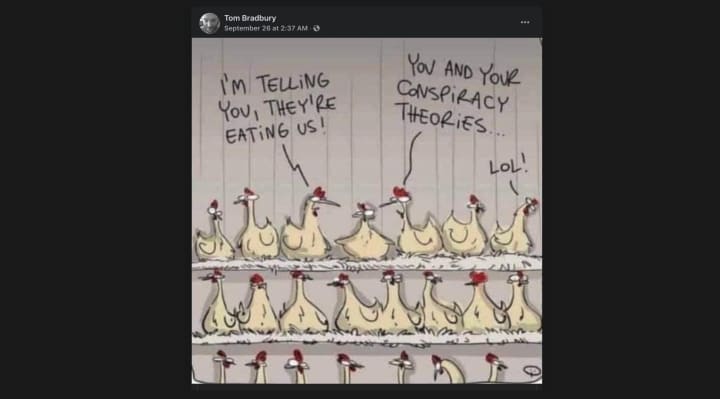Death Be Not Proud
In memory of Vocal creator Tom Bradbury. “You’ll never walk alone.”

He used to joke he was Ray Bradbury’s grandson. For those who knew him best, his wry sense of humour was a given. They knew he was pulling their leg, as the English say, but they knew too that he meant well. An older man who had lived life, he always said he had come to writing late in life — and Vocal was his outlet to creativity.
His voice was silenced this past week. A native Englander by birth, he died in a fire in an abandoned mill he purchased in a small town in France. He fell for small-town life in the French countryside, and he fell hard for the old mill from the moment he saw it. It was to be his forever home. His faithful companion of many years, his beloved dog, died only recently, and he never quite got over that. His eulogy to his companion remains one of the most powerful pieces of writing he ever created for Vocal.
He wrote often for Vocal. His writing was good, and covered a wide range of subjects. Toward the end, he became especially passionate about fiction. His writing was good enough — and, more importantly, his heart and his life-lived breadth of knowledge, and his wit were what came through most — that he earned a number of Top Stories and placed second in at least one Vocal Challenge. He said recently, in a Facebook post, that he hadn’t cashed in any of his Vocal earnings. He was saving it for a rainy day, he said.
More importantly he became a friend, mentor and endless source of compassion and inspiration to the thousands of Vocal creators who liked, followed and have signed on to the Facebook Vocal support group, The Vocal Creators Lounge. That is how I came to know him, from afar.
Social media is often castigated for being a cesspit of trolls, armchair critics and casual abusers, hiding behind a false front. Tom Bradbury put the lie to that. He was none of these. He responded to virtually every comment fellow Vocal creators posted on Facebook. I have no idea how many people he inspired with his wit and wisdom, but it numbers in the hundreds, possibly thousands.
He often said he would take a break from Facebook, and Vocal, for a while, and apologized in advance. He never did, though. He stayed faithful to what he was doing, and was a boundless source of enthusiasm and advice to other Vocal creators who were struggling. I have never known anyone who was more generous with his time. Or his spirit.
I could tell he was angry on occasion. He never let it show, though, at least not in words, either in his Vocal submissions or his Facebook posts.
I wrote a piece for Vocal earlier this year about the ascendancy of Liverpool Football Club, the lure and history of Anfield stadium, and Liverpool supporters’ adoption of the song You’ll Never Walk Alone, written by Rodgers and Hammerstein in 1945, which became Liverpool’s official anthem in 1963. To this day, Liverpool supporters sing in unison and wave enormous red flags and banners moments before the start of every home game at the venerable old ground.
Tom texted me to say he enjoyed my piece, but the Liverpool story he really expected that day, April 19, was some kind of acknowledgment and recognition of the anniversary of the Hillsborough Stadium disaster, some 32 years earlier, and a source of public mourning in Liverpool to this day, in 2021. That day, in an ill-fated FA Cup semi-final between Liverpool and Nottingham Forest, in which 97 men, women and children were crushed to death in a stampede caused, according to the findings of a 2016 coroners inquest, “Grossly negligent failures by police and ambulance services to fulfil their duty of care.”
Ninety-six people died — 94 of them that day — but the number was readjusted to 97 this past July when a coroner ruled that one final victim, in a medically induced coma after suffering severe and irreversible brain damage, was officially dead.
Tom said he had more to say about the Hillsborough disaster, but he wanted to do it in a private message, not in a public forum on Facebook. His compassion for people he barely knew, more than three decades after the day they died, speaks to who he was as a person.
I still smile, even now, at his playful assertion that he was Ray Bradbury’s grandson.
I knew Ray Bradbury in passing, when I was starting out as a writer myself, when I was 18. Ray Bradbury was generous with his time, too. He is famous as one of science-fiction’s master writers, the author of Fahrenheit 451 and The Martian Chronicles, among countless other novels and short stories. His creative works have already outlived him. Ray Bradbury is required reading in the schools I went to, and quite probably many schools today. He helped design entire worlds for Disney theme parks, in Orlando and Anaheim.
What I will remember about Ray Bradbury, though, is that he took time to write a penpal letter — typed on an old manual typewriter, with corrections in ink blotches — to an 18-year-old would-be writer he would never meet, but had struck up a long-distance correspondence with.
I told Tom he had more in common with Ray Bradbury than he might suppose, when he was telling playful fibs about familial connections that weren’t there. Tom, you see, was equally generous with his time. There’s hardly a single follower of the Vocal Creators Lounge on Facebook who didn’t experienced that generosity of time personally.
Tom’s sudden passing has had me thinking about Ray Bradbury these past few days. Ray Bradbury would have liked Tom very much. My one regret now is that I didn’t tell Tom that in so many words.
Among his many, many other works, Ray Bradbury had a few things to say about death. The elder Bradbury died on June 5, 2012, at the age of 91, after suffering along illness.
“The father hesitated only a moment,” Ray Bradbury wrote in his 1962 novel Something Wicked This Way Comes. “He felt the vague pain in his chest. If I run, he thought, what will happen? Is Death important? No. Everything that happens before Death is what counts. And we've done fine tonight. Even Death can’t spoil it.”
And this:
“Death doesn't exist. It never did, it never will. But we've drawn so many pictures of it, so many years, trying to pin it down, comprehend it, we've got to thinking of it as an entity, strangely alive and greedy. All it is, however, is a stopped watch, a loss, an end, a darkness. Nothing.”
And this, from Fahrenheit 451:
“Everyone must leave something behind when he dies, my grandfather said. A child or a book or a painting or a house or a wall built or a pair of shoes made. Or a garden planted. Something your hand touched some way so your soul has somewhere to go when you die, and when people look at that tree or that flower you planted, you're there.
“It doesn't matter what you do, he said, so long as you change something from the way it was before you touched it into something that's like you after you take your hands away. The difference between the man who just cuts lawns and a real gardener is in the touching, he said. The lawn-cutter might just as well not have been there at all; the gardener will be there a lifetime.”
Hail and amen. Tom Bradbury will be here a lifetime.

About the Creator
Hamish Alexander
Earth community. Visual storyteller. Digital nomad. Natural history + current events. Raconteur. Cultural anthropology.
I hope that somewhere in here I will talk about a creator who will intrigue + inspire you.
Twitter: @HamishAlexande6






Comments
There are no comments for this story
Be the first to respond and start the conversation.